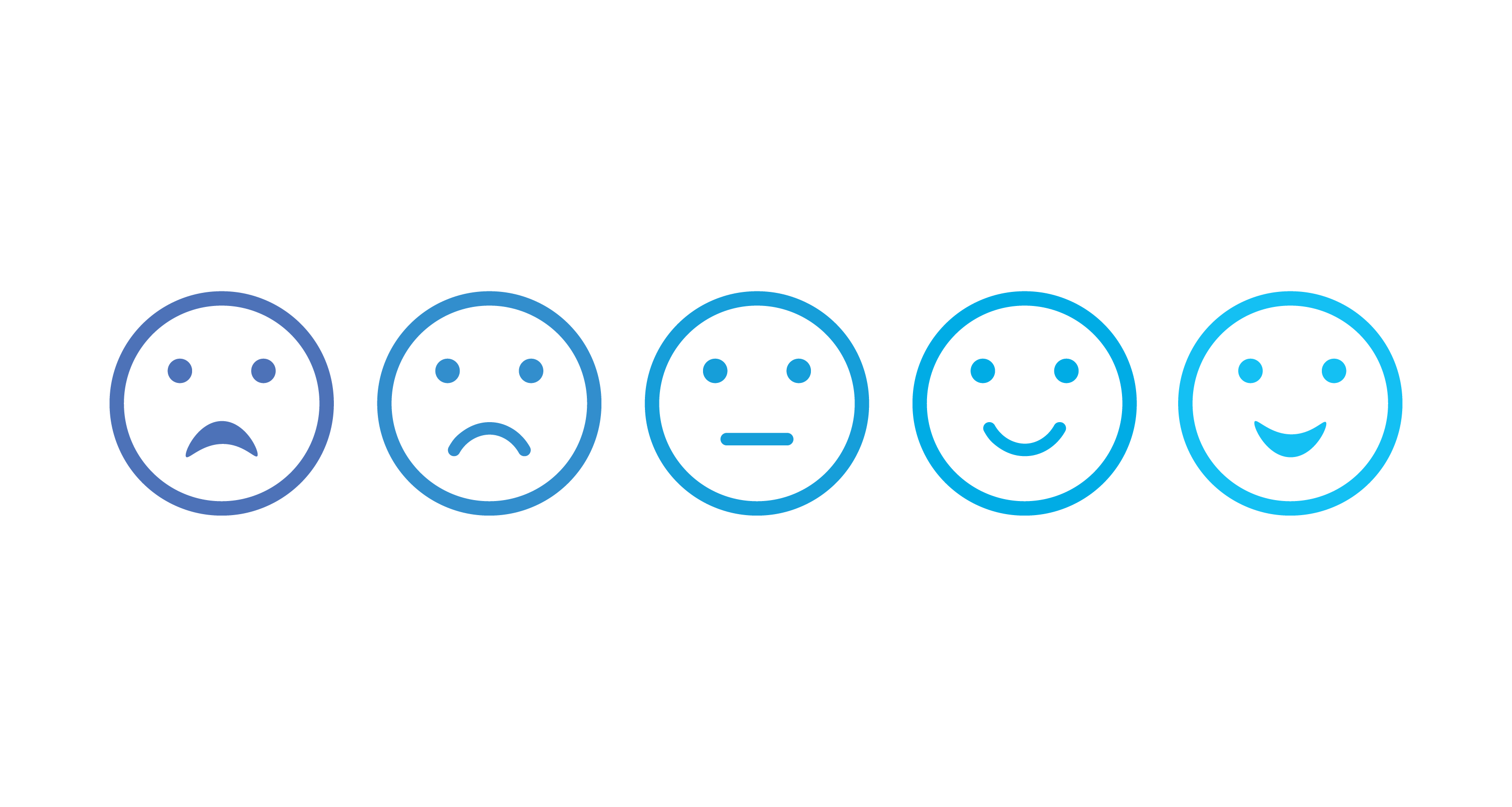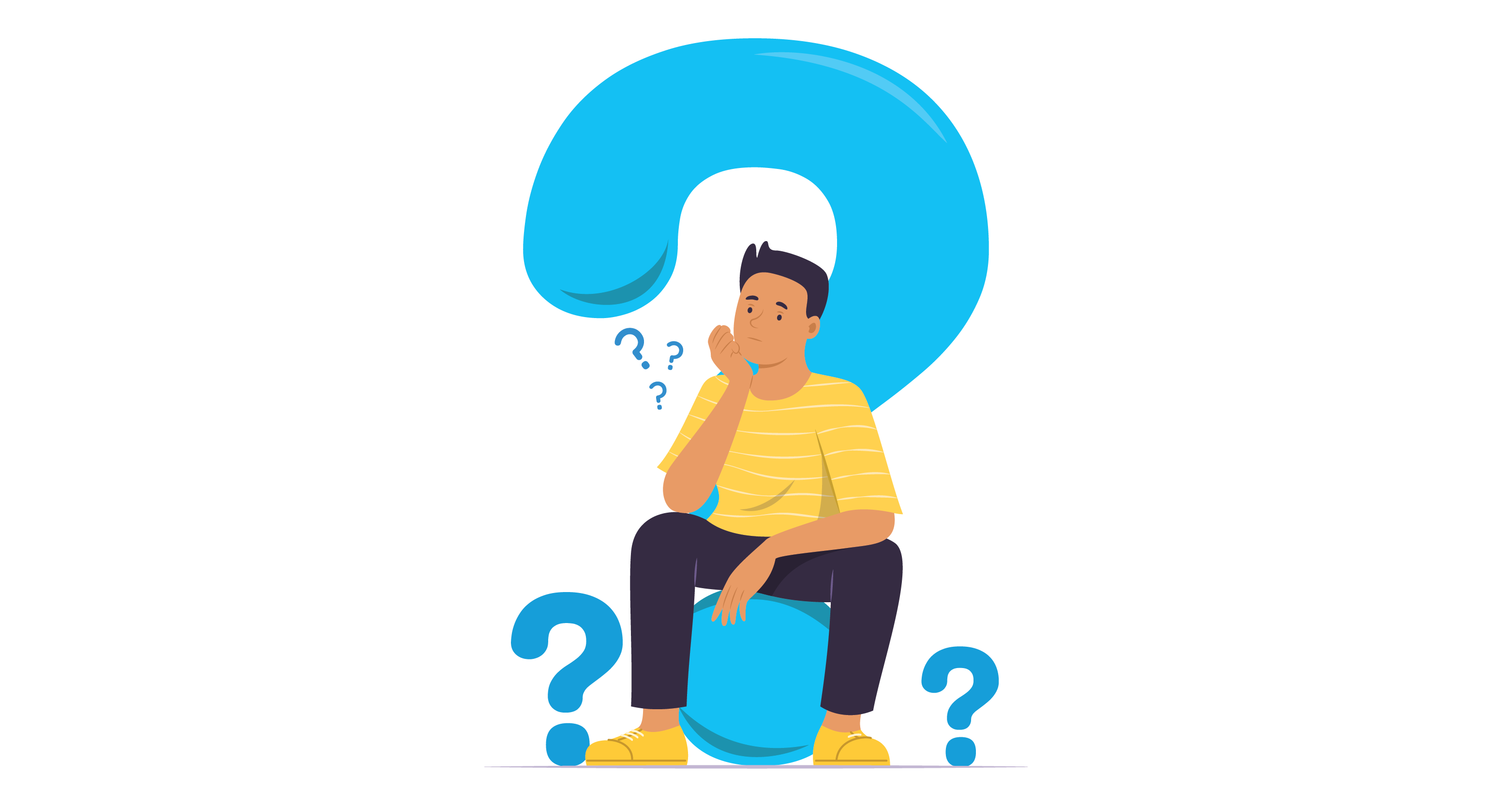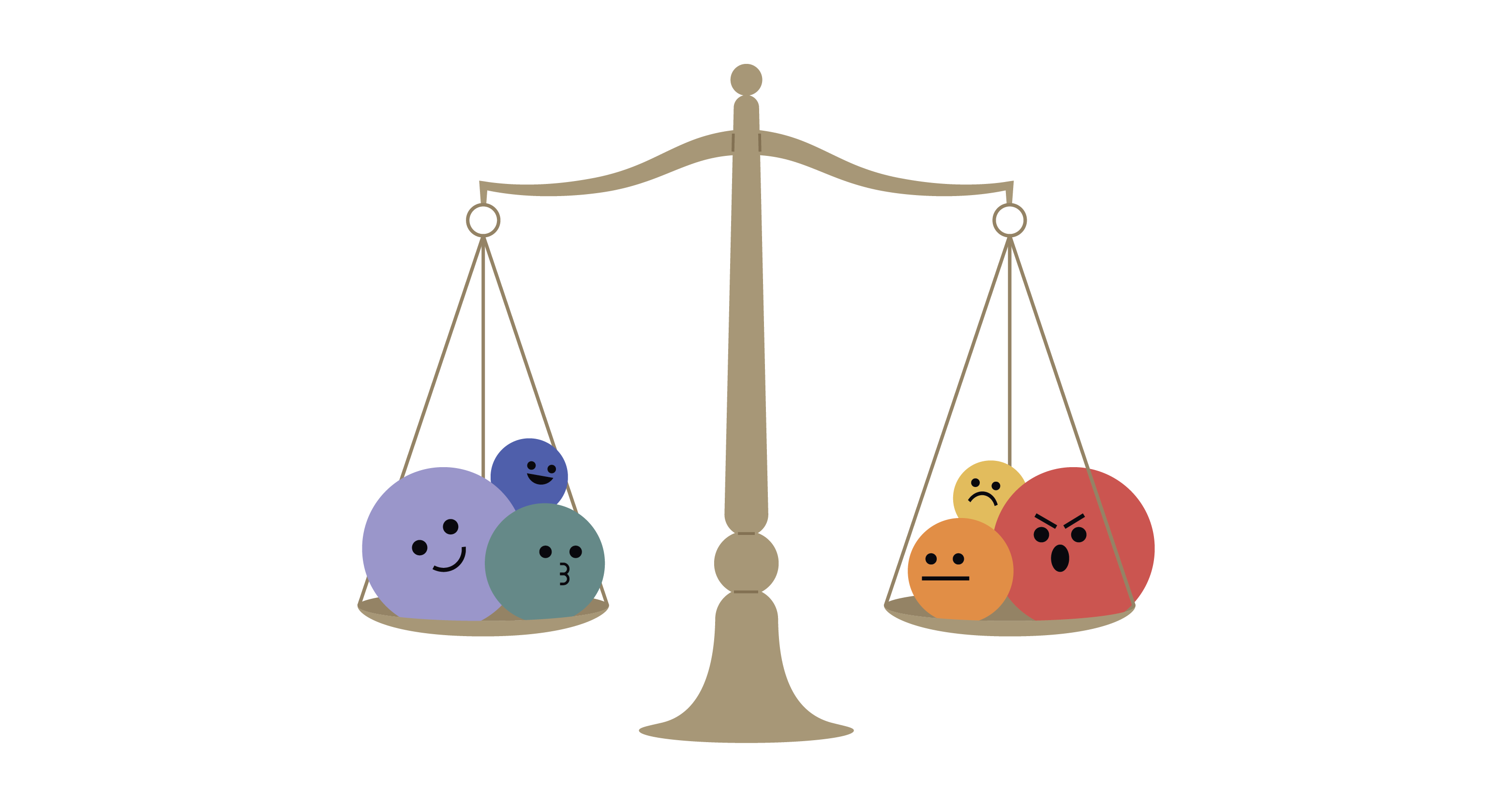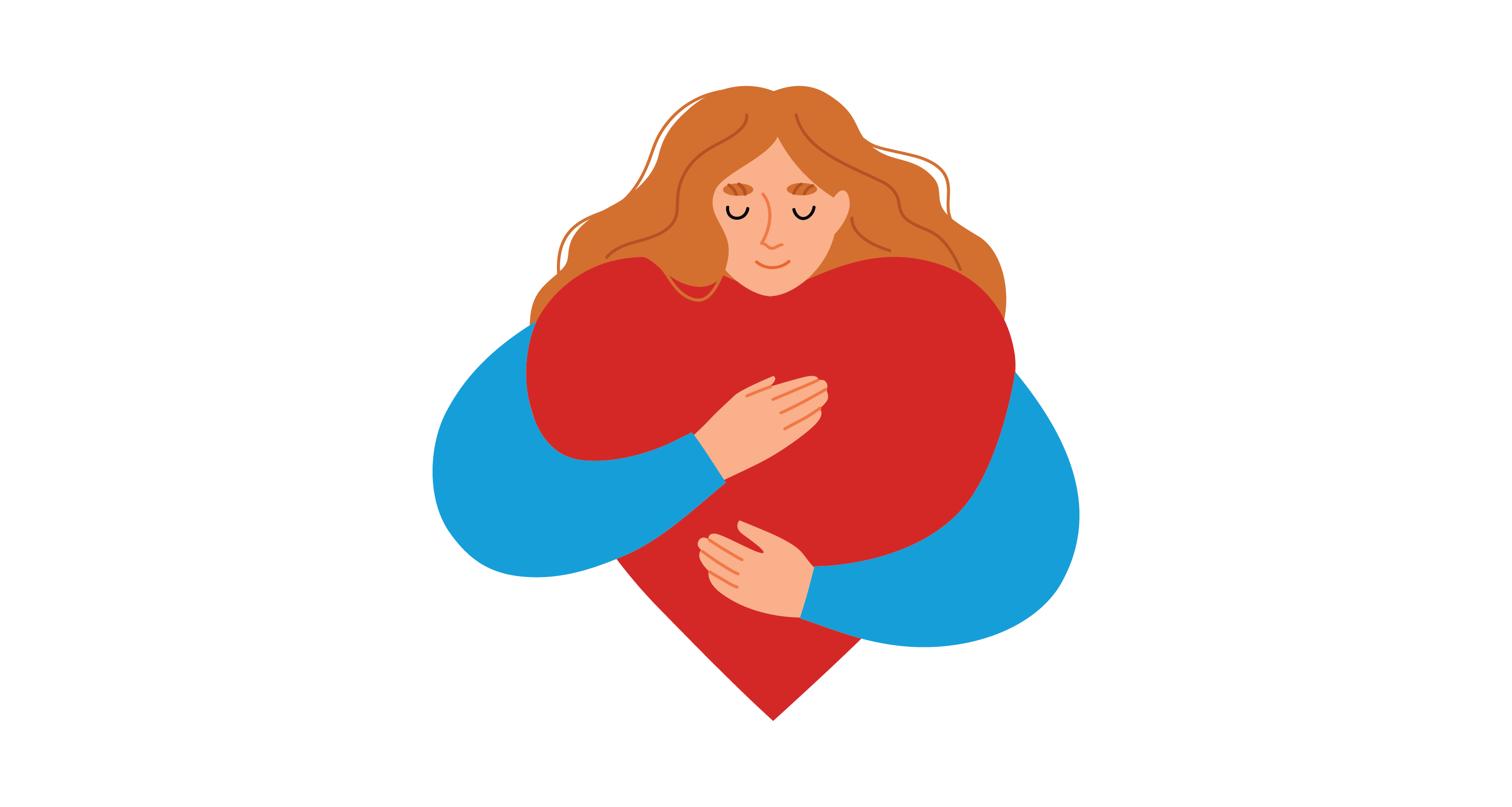Navigating Uncertainty: Supporting Clients and Caring for Ourselves
Uncertainty is an inevitable part of life, yet it often amplifies stress, anxiety, and overwhelm. Whether it’s a global crisis, such as a health pandemic, natural disaster, or terrorist attack; a personal transition, like the end of a relationship, job loss, or a major health diagnosis; or broader societal shifts, including economic changes, political upheavals, or shifts in cultural norms, these moments test resilience and challenge one’s sense of stability. Quantitative research has established an association between high levels of uncertainty and worsening mental health problems, such as depression, anxiety, and psychological distress, highlighting the significant impact uncertainty can have on well-being.
As mental health professionals, we play a crucial role in supporting those we serve navigate uncertainty. During times of change, people often experience a wide range of emotions—fluctuating between anxiety, stress, frustration, and even hope—depending on their resilience, coping mechanisms, and support systems. Our role is to provide steadiness, clarity, and compassion, creating a safe, grounding presence where clients feel heard and validated. In this blog, we’ll explore key considerations when working with clients facing uncertainty, including normalizing emotional responses, understanding the neuroscience of uncertainty, examining its impact on well-being, offering practical ways to manage it, and recognizing the importance of self-care as a provider.
Normalizing Emotional Responses
During times of uncertainty, people can experience a wide range of emotions, often fluctuating between different states depending on their past experiences, coping mechanisms, support systems, and personal resilience. Previous life challenges, traumas, or moments of growth can shape how individuals process uncertainty, influencing their emotional responses and coping strategies. It’s essential to normalize and validate these emotions, acknowledging that they are a natural part of the human experience. By providing a space for clients to express their feelings without judgment, we help them process and make sense of their emotional landscape. Common emotions people often experience during uncertain times include:

Anxiety & Fear – Worry about the unknown, potential risks, or loss of control.
Stress & Overwhelm – A sense of being stretched too thin, mentally or emotionally.
Frustration & Irritation – Feeling stuck, powerless, or impatient.
Sadness & Grief – Mourning lost opportunities, stability, or a sense of normalcy.
Loneliness & Isolation – Feeling disconnected from others due to changes or uncertainty.
Restlessness & Anticipation – A mix of excitement and unease about what’s ahead.
Confusion & Indecision – Uncertainty about the right choices or next steps.
Curiosity & Skepticism – A desire for clarity but questioning available information.
Hope & Optimism – Seeing potential for growth, new opportunities, or resilience.
Excitement & Readiness – Some thrive in uncertainty and feel energized by change.
Determination & Adaptability – A willingness to pivot and make the most of challenges.
Understanding the Neuroscience of Uncertainty
Uncertainty often triggers the brain’s threat response because our brains are wired for survival. When we don’t know what’s coming next, the brain perceives it as a potential danger, activating the amygdala (the fear center) and releasing stress hormones like cortisol. At the same time, the prefrontal cortex, which is responsible for logical thinking and decision-making, tries to make sense of the situation. However, too much uncertainty can overwhelm this system, making it harder to think clearly, plan, or stay focused.

As mental health providers, it’s important to help clients understand this process. The brain craves predictability, so when faced with uncertainty, it constantly searches for patterns or relies on past experiences to regain a sense of control. If it can’t find these, we may feel anxious, stressed, or even paralyzed. This understanding can help clients recognize their emotional responses as natural and rooted in biology. On the flip side, small doses of uncertainty can stimulate dopamine, the reward chemical, making new experiences exciting and promoting growth. The key is balancing uncertainty—too much can cause stress, but when managed properly, it can foster learning, adaptability, and resilience.
Exploring How Uncertainty Affects Well-Being
Uncertainty can significantly impact well-being in several ways. Below are some key examples:

Physical Health Effects – Chronic stress from uncertainty weakens the immune system, disrupts sleep, and contributes to high blood pressure, digestive issues, and inflammation.
Impact on Motivation & Purpose – Long-term uncertainty can drain motivation, making it harder to set goals, stay engaged, or find meaning in daily life.
Impairs Mental Performance – Too much uncertainty overwhelms the prefrontal cortex, making it harder to focus, make decisions, or regulate emotions. This can lead to frustration, mental fatigue, indifference, and feeling stuck.
Increased Stress & Anxiety – When the brain senses uncertainty, the amygdala (fear center) kicks into high gear, releasing cortisol and adrenaline. Over time, chronic uncertainty can lead to persistent stress, anxiety, and even burnout.
Heightened Emotions & Loss of Control – Uncertainty can lead to mood swings, irritability, and a deep sense of helplessness. When control feels lost, the brain struggles to regain stability, often triggering frustration and anger. Feeling powerless may cause people to lash out or internalize their emotions, leading to resentment and distress.
Addictive Behaviors & Numbing – To cope with the discomfort of uncertainty, some people turn to alcohol, drugs, overeating, gambling, or excessive screen time as a way to numb stress and escape difficult emotions. While these behaviors may offer temporary relief, they often reinforce a cycle of avoidance, making it harder to develop healthy coping mechanisms.
Exploring Practical Ways to Deal with Uncertainty
While uncertainty can be overwhelming, learning to tolerate and navigate it can build resilience, adaptability, and emotional regulation, skills that will support your client throughout life. Here are practical strategies to help clients cope:

Focus on What You Can Control – Encourage clients to shift their attention away from the overwhelming aspects of uncertainty by focusing on what is within their power. Help them set small, achievable goals, establish daily or weekly routines, and take concrete actions in areas they can influence. This approach empowers clients to regain a sense of agency, reducing anxiety about the unknown.
Regulate Stress & Emotions – Teach clients how to manage stress and regulate their emotions with practical techniques, such as box breathing, the 4-7-8 method, and other relaxation exercises. Encourage mindfulness and grounding practices (like the 5-4-3-2-1 method) to help clients stay present and reduce emotional overwhelm. Regular physical exercise and self-care routines can also help strengthen emotional regulation.
Adjust Planning Horizons – Help clients avoid becoming paralyzed by long-term uncertainty by focusing on smaller, manageable time frames. Encourage them to concentrate on the next day or week, which provides clarity and focus for decision-making. Breaking down larger goals into smaller, achievable steps makes uncertainty feel more manageable.
Accept Discomfort Instead of Avoiding It – Guide clients in accepting the discomfort that comes with uncertainty rather than avoiding it. Remind them that uncertainty is an inherent part of life and help them reflect on past situations where they successfully managed challenges. This builds confidence and resilience, empowering clients to face the unknown with greater courage.
Encourage Cognitive Flexibility – Teach clients to develop cognitive flexibility by reframing negative or rigid thoughts. Encourage them to approach challenges from multiple perspectives, which can increase resilience and reduce feelings of being “stuck.” Cognitive flexibility helps clients adapt to unexpected changes, fostering greater confidence in navigating uncertainty.
Challenge Negative Thinking – Help clients recognize and challenge negative thought patterns that arise in uncertain times. Through cognitive reframing and reality-checking, clients can shift their perspectives from fear and helplessness to possibility and growth. Gratitude practices can further help clients focus on the positive aspects of their life, lessening the mental weight of uncertainty.
Foster Meaning and Purpose – Encourage clients to reconnect with their deeper purpose or core values, which can act as an anchor during turbulent times. Knowing one’s “why” provides direction, even when external circumstances feel out of control. By fostering a strong sense of purpose, clients can maintain resilience and stability amid uncertainty, helping them feel grounded and more capable of navigating challenges.
Avoid Unhealthy Numbing Behaviors – Clients may be tempted to cope with uncertainty through numbing behaviors such as excessive substance use, social media scrolling, or emotional avoidance. Encourage them to replace these with healthier stress-relief activities, such as walking, journaling, or engaging in meaningful conversations. This shift helps clients develop healthier coping mechanisms and improve their emotional well-being.
Strengthen Support Systems – Encourage clients to reach out for connection and support during uncertain times. Strengthening relationships with friends, family, or community groups provides resilience and a sense of belonging. Help clients identify their support network and encourage them to seek professional help when necessary to maintain emotional health.
Acknowledging and Supporting Yourself as a Provider
As professionals supporting others through uncertainty, we must also acknowledge our own experiences and emotions. Holding space for clients while navigating our own fears and unknowns can be exhausting. To sustain our ability to help others, we need to practice the same resilience strategies we recommend:

Self-Compassion – Recognize that uncertainty impacts you too. Be kind to yourself and acknowledge that you don’t have to have all the answers.
Set Boundaries – Protect your energy by setting limits on workload and emotional labor. It’s okay to take breaks and recharge.
Prioritize Your Own Well-Being – Engage in activities that restore balance, whether it’s mindfulness, exercise, hobbies, or connecting with loved ones.
Seek Support – Talk with peers, mentors, professional supervisors, or you own therapist to process your emotions and challenges.
Embrace Flexibility – Accept that uncertainty is part of both professional and personal life. Lean into adaptability and trust in your capacity to navigate change.
Times of uncertainty are challenging, but they also offer opportunities for transformation. Above all, clients need a supportive space where they feel heard, validated, and understood. Our role is not to eliminate their uncertainty but to walk alongside them as they navigate it. Offering compassionate listening, reassurance, and evidence-based tools can empower clients to trust in their ability to weather the storm. By helping clients—and ourselves—develop resilience, self-trust, and adaptability, we equip everyone to face life’s unpredictability with greater confidence and ease.
References
Kienzler, H., Massazza, A., Kuykendall, R., Tamimi, N., Hammoudeh, W., & Giacaman, R. (2025). Uncertainty and mental health: A qualitative scoping review. SSM – Qualitative Research in Health, 7, 100521. https://doi.org/10.1016/j.ssmqr.2024.100521
Massazza, A., Kienzler, H., Al-Mitwalli, S., Tamimi, N., & Giacaman, R. (2023). The association between uncertainty and mental health: a scoping review of the quantitative literature. Journal of mental health (Abingdon, England), 32(2), 480–491. https://doi.org/10.1080/09638237.2021.2022620
OpenAI. (2024). ChatGPT (Version 4) [AI language model]. Assisted in generating ideas and editing content for improved flow in the blog post on uncertainty and mental health. Retrieved February 10, 2024, from https://chat.openai.com
Blog Post Tags:
Related Blog Posts
Related Learning Labs
Related Resources
.
- Buscar Tratamiento de Calidad para Trastornos de uso de Sustancia (Finding Quality Treatment for Substance Use Disorders Spanish Version)
- Finding Quality Treatment for Substance Use Disorders
- Focus On Prevention: Strategies and Programs to Prevent Substance Use
- Monthly Variation in Substance Use Initiation Among Full-Time College Students
- The National Survey on Drug Use and Health (NSDUH) Report: Monthly Variation in Substance Use Initiation Among Adolescents







